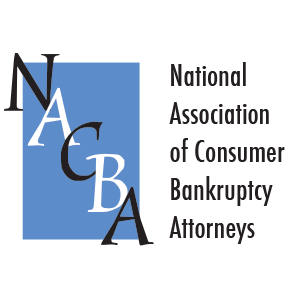By: Sarah J. Crouch
The first step in establishing any kind of new financial existence for yourself is to make sure that you know where you are right now.
I know. This sounds basic. And you probably have a one word answer for the “How are my finances now question?”
BROKE.
This may or may not be true. I have lost track of the number of times I have told my clients that they should have money left at the end of the month and been called an insane person. So I say, well let’s look at the bank statement and when I am done taking out all of the absolutely unnecessary expenses, my clients are a little surprised by how much money they have arguably thrown into a pit and set fire too.
So here is where we start:
Get out your online bank account or bank statements and make a chart with four columns on a piece of paper.
Income Expenses Luxuries DEBT
(I know…I know…you don’t have any luxuries in your life…we will get to that. I swear I am not an insane person.)
Now, take a look at your bank statement and under each of those headlines put in the pertinent information. Under income, put all of your income in there, don’t forget to account for regular expense checks. Under expenses put actual expenses only. I am talking about Utility Bills, Mortgage, Groceries (don’t include trips to Target where you also bought a scarf or jeans). I don’t want to see trips to McDonalds or Dunkin at lunchtime. Only actual necessary expenses.
Now, under luxuries, put the trips to Dunkin, McDonalds, Starbucks (GUILTY), the scarves at Target (SUPER GUILTY), and all the little extras that we all spend money and don’t think about. I want you to put every single one of these that you spent money on in the last month in that column and add it up. Scary right? How high is that number? I know when I did this for myself it came to about 150 bucks, and I am fairly good about the fast food. I don’t eat much of it….now Starbucks and Target…that is another story. My assistant figured out that between her and her son she was spending about 250 bucks a month on fast food. We all do it. We are all guilty, you are not a bad person for having a high number here, this problem sneaks up on the best of us.
Now let’s take a look at the debt column. Are these balances on the rise, are they revolving but you aren’t making a dent? Are you having trouble keeping up with the mortgage? Medical bills? Is the whole situation a giant house of cards that will fall as soon as you have a kid need to stay home sick from school?
Now, here is the fun part.
Take this chart and make an appointment with a financial professional, an accountant, a financial planner, a bankruptcy attorney, for a consultation with someone that can help you. Someone with a license, a degree, and a pile of happy clients, not your brother who does his taxes with H&R Block every year and seems to be good at math or your sister that filed bankruptcy a few years ago and knows everything about it. Instead, discreetly ask around to see if anyone knows one someone that has helped them with financial issues. You will be shocked by how many of your family, friends, and colleagues have been in my office.
I see a lot of new clients this time of year. People walk into my office and say, “I just can’t do it anymore” or “I don’t even know where to start”. We go over their income, expenses, debt, and general financial issues and decide how best to attack this problem.
Sometimes the answer is a bankruptcy case. Sometimes it is just the best way out. I say this because a lot of people think that bankruptcy should be a last resort. I disagree. I wish more people came to before it was the only way out, back when it is the best way out. This means I am not racing a garnishment to the courthouse door. We are on the offensive in a financial situation instead of playing defense.
I say to my clients all the time, “If I could wave my magic wand and make all of these credit card and medical bills disappear, would you be able to pay your bills?” 99.9% of the time the answer to that question is “YES.” If that is how you would answer that question, bankruptcy might be the BEST solution and not the ONLY solution. This is an important distinction when you are assessing your situation as a whole.
Other times, more careful budgeting and watching that luxury column is the best solution. Sometimes, thinking about a second part time job is the best solution.
This is what assessing the situation gets you too. It gets you to a starting point. DO NOT SKIP THIS STEP. It is mission critical.
So you have your starting point, now what? What is the plan? Time to set goals and put together a budget!
Next time: Setting A Goal and Making a Budget
Interested in how we can help you file bankruptcy or assess your financial existence? Give our office a call at 732-302-9600 or fill out our online consultation form and we will call you!









